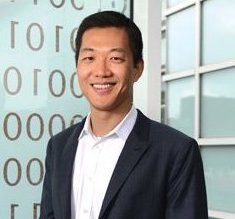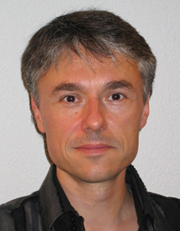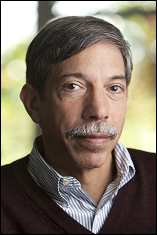CySeP '17 Speakers
Steve M. Bellovin (Columbia University, NY, USA)
 | Steven M. Bellovin is the Percy K. and Vidal L. W. Hudson Professor of Computer Science at Columbia University and member of the Cybersecurity and Privacy Center of the university's Data Science Institute. He does research on security and privacy and on related public policy issues. In his copious spare professional time, he does some work on the history of cryptography. He joined the faculty in 2005 after many years at Bell Labs and AT&T Labs Research, where he was an AT&T Fellow. He received a BA degree from Columbia University, and an MS and PhD in Computer Science from the University of North Carolina at Chapel Hill. While a graduate student, he helped create Netnews; for this, he and the other perpetrators were given the 1995 Usenix Lifetime Achievement Award (The Flame). |
Bellovin has served as Chief Technologist of the Federal Trade Commission and as the Technology Scholar at the Privacy and Civil Liberties Board. He is a member of the National Academy of Engineering and is serving on the Computer Science and Telecommunications Board of the National Academies of Sciences, Engineering, and Medicine. In the past, he has been a member of the Department of Homeland Security's Science and Technology Advisory Committee, and the Technical Guidelines Development Committee of the Election Assistance Commission; he has also received the 2007 NIST/NSA National Computer Systems Security Award and has been elected to the Cybersecurity Hall of Fame. Bellovin is the author of Thinking Security and the co-author of Firewalls and Internet Security: Repelling the Wily Hacker, and holds a number of patents on cryptographic and network protocols. He has served on many National Research Council study committees, including those on information systems trustworthiness, the privacy implications of authentication technologies, and cybersecurity research needs; he was also a member of the information technology subcommittee of an NRC study group on science versus terrorism. He was a member of the Internet Architecture Board from 1996-2002; he was co-director of the Security Area of the IETF from 2002 through 2004.
Robin Blokker (FRA, Sweden)
 | Robin Blokker is a security specialist at FRA's network security unit, where he works with IT incidents and penetration testing for Swedish authorities. Robin's main technical expertise is web security and client attacks. |
Jan Camenisch (IBM Research, Switzerland)
 |
Jan Camenisch is a Principal Research Staff Member at IBM Research - Zurich. He holds a Diploma in Electrical Engineering Science from the ETH Zurich (1993). He then worked at Martignoni Electronics, Switzerland, on the design of modems. He has received his Ph.D. from ETH Zurich in 1998. Thereafter, he became a Research Assistant Professor in Computer Science at the University of Aarhus, Denmark. Since 1999, Dr. Camenisch has been a Research Staff Member at the IBM Zurich Research Laboratory, where he has been working in cryptography, network security and privacy. He published over 90 refereed papers in this area and was a chair of a few and a member of numerous scientific program committees and teaches a course on technologies for privacy protection at ETH Zurich. |
Dr. Camenisch was the technical leader of the EU-funded project PRIME and PrimeLife. Dr. Camenisch is an IEEE Fellow and has received a number of awards for this work on privacy-enhancing technologies including the 2013 IEEE Computer Society Technical Award and the 2010 ACM SIGSAC Outstanding Innovation Award. His interests include cryptographic protocols, in particular those supporting privacy and anonymity, and practical secure distributed computation.
Virgil D. Gligor (Carnegie Mellon University, PA, USA)
 |
Virgil D. Gligor received his B.Sc., M.Sc., and Ph.D. degrees from the University of California at Berkeley. He taught at the University of Maryland between 1976 and 2007, and is currently a Professor of ECE at Carnegie Mellon University. Between 2007 and 2015 he was the co-Director of CyLab. Over the past forty years, his research interests ranged from access control mechanisms, penetration analysis, and denial-of-service protection, to cryptographic protocols and applied cryptography. Gligor was an editorial board member of several ACM and IEEE journals and the Editor in Chief of the IEEE Transactions on Dependable and Secure Computing. He received the 2006 National Information Systems Security Award jointly given by NIST and NSA, the 2011 Outstanding Innovation Award of the ACM SIG on Security Audit and Control, and the 2013 Technical Achievement Award of the IEEE Computer Society. |
Wenke Lee (Georgia Institute of Technology, GA, USA)
 |
Wenke Lee is the co-director of the Institute for Information Security & Privacy and a Professor of Computer Science and the John P. Imlay Jr. Chair in the College of Computing at Georgia Tech. His research expertise includes systems and network security, botnet detection and attribution, malware analysis, virtual machine monitoring, mobile systems security, and detection and mitigation of information manipulation on the Internet. Lee regularly leads large research projects funded by the National Science Foundation, Department of Defense, Department of Homeland Security, and private industry. Significant discoveries from his research group have been transferred to industry, and in 2006, Lee co-founded Damballa, Inc. to focus on detection and mitigation of advanced persistent threats. |
Herbert Lin (Stanford University, CA, USA)
 |
Dr. Herb Lin is senior research scholar for cyber policy and security at the Center for International Security and Cooperation and Hank J. Holland Fellow in Cyber Policy and Security at the Hoover Institution, both at Stanford University. His research interests relate broadly to policy-related dimensions of cybersecurity and cyberspace, and he is particularly interested in and knowledgeable about the use of offensive operations in cyberspace, especially as instruments of national policy. In addition to his positions at Stanford University, he is Chief Scientist, Emeritus for the Computer Science and Telecommunications Board, National Research Council (NRC) of the National Academies, where he served from 1990 through 2014 as study director of major projects on public policy and information technology, and Adjunct Senior Research Scholar and Senior Fellow |
in Cybersecurity (not in residence) at the Saltzman Institute for War and Peace Studies in the School for International and Public Affairs at Columbia University; and a member of the Science and Security Board of the Bulletin of Atomic Scientists. He recently served on President Obama’s Commission on Enhancing National Cybersecurity. Prior to his NRC service, he was a professional staff member and staff scientist for the House Armed Services Committee (1986-1990), where his portfolio included defense policy and arms control issues. He received his doctorate in physics from MIT. To read more about Herb Lin's interests, please read "An Evolving Research Agenda in Cyber Policy and Security." Avocationally, he is a longtime folk and swing dancer and a poor magician. Apart from his work on cyberspace and cybersecurity, he is published in cognitive science, science education, biophysics, and arms control and defense policy. He also consults on K-12 math and science education.
Ueli Maurer (ETH Zurich, Switzerland)
 |
Ueli Maurer is professor of computer science and head of the Information Security and Cryptography Research Group at the Swiss Federal Institute of Technology (ETH), Zurich. His research interests include theory and applications of cryptography, information security, theoretical computer science, information theory, and discrete mathematics. One of his long-term research goals is to establish a constructive theory of cryptography and to apply it to the modular design of provably-secure cryptographic protocols. He has served as Editor-in-Chief of the Journal of Cryptology from 2002 to 2010, as associate editor for the IEEE Transactions on Information Theory, and currently serves as associate editor for the Journal of Computer and System Sciences. |
He is an IEEE Fellow, an ACM Fellow, an IACR Fellow, and a member of the German Academy of Sciences (Leopoldina). He was the 2000 Rademacher Lecturer of the Department of Mathematics at the University of Pennsylvania and received the 2013 Vodafone Innovation Award for Mobile Communications, the 2016 RSA Award for Excellence in the Field of Mathematics, and the 2016 Theory of Cryptography (TCC) Test-of-Time Award. Maurer has served many companies and start-ups as board member and consultant.
Bart Preneel (imec-COSIC Katholieke Universiteit Leuven, Belgium)
 |
Prof. Bart Preneel is full professor at the KU Leuven and heads the imec-COSIC research group, which has 80 members. He was visiting professor at five universities in Europe. He has authored more than 400 scientific publications and is inventor of 5 patents. His main research interests are cryptography, information security and privacy. Bart Preneel has served as panel chair for the European Research Council and has been president of the IACR (International Association for Cryptologic Research). He is a member of the Permanent Stakeholders group of ENISA (European Network and Information Security Agency), of the Academia Europaea, and of the Belgian Privacy Commission (subcommittee national register). He has been invited speaker at more than 120 conferences in 50 countries. In 2014 he received the RSA Award for Excellence in the Field of Mathematics, in 2015 he was elected as fellow of the IACR and in 2016 he received the Kristian Beckman award from IFIP TC11. Bart Preneel is co-founder and chairman of the board of LSEC, an international association of companies in the area of cybersecurity. |
Amit Sahai (UC Los Angeles, CA, USA)
 |
Professor Amit Sahai received his Ph.D. in Computer Science from MIT in 2000. From 2000 to 2004, he was on the faculty at Princeton University; in 2004 he joined UCLA, where he currently holds the position of Professor of Computer Science. His research interests are in security and cryptography, and theoretical computer science more broadly. He is the co-inventor of Attribute-Based Encryption, Functional Encryption, and Indistinguishability Obfuscation. He has published more than 100 original technical research papers at venues such as the ACM Symposium on Theory of Computing (STOC), CRYPTO, and the Journal of the ACM. He has given a number of invited talks at institutions such as MIT, Stanford, and Berkeley, including the 2004 Distinguished Cryptographer Lecture Series at NTT Labs, Japan. |
Professor Sahai is the recipient of numerous honors; he was named an Alfred P. Sloan Foundation Research Fellow in 2002, received an Okawa Research Grant Award in 2007, a Xerox Foundation Faculty Award in 2010, a Google Faculty Research Award in 2010, a 2012 Pazy Memorial Award, and a 2016 ACM CCS Test of Time Award. For his teaching, he was awarded the 2016 Lockheed Martin Excellence in Teaching Award. His research has been covered by several news agencies including the BBC World Service, Quanta Magazine, Wired, and IEEE Spectrum.
Pierangela Samarati (University of Milano, Italy)
| Pierangela Samarati is a Professor at the Department of Computer Science of the Universita` degli Studi di Milano, Italy. Her main research interests are: data security and privacy; access control policies, models and systems; information system security; and information protection in general. She has participated in several projects involving different aspects of information protection. On these topics she has published more than 240 papers in international journals, conference proceedings, and book chapters. She has been Computer Scientist in the Computer Science Laboratory at SRI, CA (USA). She has been a visiting researcher at the Computer Science Department of Stanford University, CA (USA), and at the Center for Secure Information System of George Mason University, VA (USA). |
She is the chair of the IEEE Systems Council Technical Committee on Security and Privacy in Complex Information Systems (TCSPCIS), of the Steering Committees of the European Symposium on Research in Computer Security (ESORICS), and of the ACM Workshop on Privacy in the Electronic Society (WPES). She is member of several steering committees. She is ACM Distinguished Scientist (named 2009) and IEEE Fellow (named 2012). She has been awarded the IFIP TC11 Kristian Beckman award (2008) and the IFIP WG 11.3 Outstanding Research Contributions Award (2012).
She has served as General Chair, Program Chair, and program committee
member of several international conferences.
Fred B. Schneider (Cornell University, NY, USA)
 |
Fred B. Schneider is Samuel B. Eckert Professor of Computer Science and chair of Cornell's CS Dept. He is a fellow of ACM, AAAS, and IEEE, and is a member of the US National Academy of Engineering and a foreign member of the Norwegian Academy of Technologigcal Sciences. Schneider was awarded a Doctor of Science honoris causa by the University of Newcastle-upon-Tyne in 2003 for his work in computer dependability and security. He received the 2012 IEEE Emanuel R. Piore Award for "contributions to trustworthy computing through novel approaches to security, fault-tolerance and formal methods for concurrent and distributed systems”. |
Gene Tsudik (UC Irvine, CA, USA)
 |
Gene Tsudik is a Chancellor's Professor of Computer Science at the University of California, Irvine (UCI). He obtained his PhD in Computer Science from USC in 1991. Before coming to UCI in 2000, he was at IBM Zurich Research Laboratory (1991-1996) and USC/ISI (1996-2000). Over the years, his research interests included many topics in security and applied cryptography. He is the Director of Secure Computing and Networking Center (SCONCE) at UCI. Gene Tsudik is a former Fulbright Scholar and a fellow of the ACM and the IEEE. Since 2009 he serves as the Editor-in-Chief of ACM Transactions on Information and Systems Security (TISSEC). |
Navigation
Important Dates
- CySeP dates:
June 19 - 22, 2017
Registration deadline:
June 16, 2017
(or until all seats are taken)
Poster/demo deadline:
June 15, 2017
Contact
- Panos Papadimitratos
- Email: papadim@kth.se
- Tel: +46 8 790 4263
(on campus, dial 4263)


